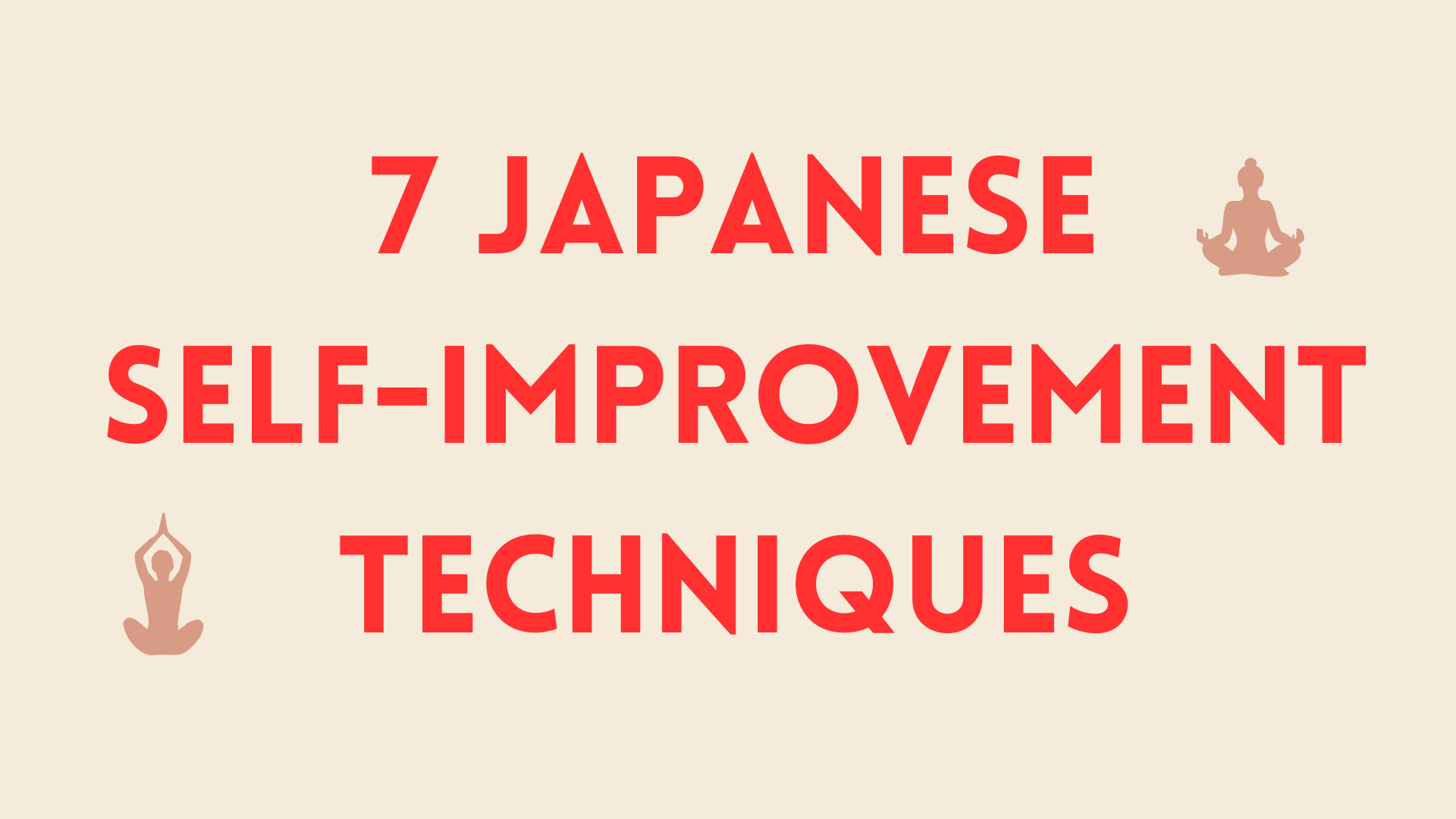7 Japanese self-improvement techniques to transform your life
Explore seven Japanese self-improvement tips to enhance personal growth and unlock your full potential. Discover ancient wisdom for modern living.
In the bustling modern world, where the din of daily life often drowns out our inner voice, the pursuit of personal growth can seem like a distant dream. However, within the rich tapestry of Japanese culture lies a profound wisdom that offers a roadmap for self-improvement.
Let's embark on a journey to explore these seven Japanese self-improvement tips, each holding the potential to ignite profound transformation within ourselves.
Kaizen: The power of incremental progress
Kaizen, often translated as "continuous improvement," is a philosophy that emphasises making small, incremental changes over time. Originating from the manufacturing sector in Japan, Kaizen has permeated various aspects of life, urging individuals to focus not on grandiose leaps but on steady, consistent progress. By breaking down daunting goals into manageable tasks and embracing the ethos of constant refinement, one can cultivate a mindset of resilience and perseverance.
Ikigai: Discovering purpose and fulfillment
At the heart of Japanese culture lies the concept of Ikigai, a term that encapsulates the essence of finding one's purpose or reason for being. Ikigai represents the intersection of what you love, what you are good at, what the world needs, and what you can be paid for. By delving deep into introspection and soul-searching, individuals can uncover their unique Ikigai, guiding them towards a life of fulfilment, passion, and meaning.
Shokunin: The art of mastery and dedication
Embedded within Japanese craftsmanship is the notion of shokunin, a term that embodies the pursuit of excellence and mastery in one's craft. Whether it be in traditional arts such as pottery or contemporary fields like business, adopting a shokunin mindset entails unwavering dedication, meticulous attention to detail, and an unrelenting commitment to continuous improvement. Through the cultivation of discipline and a relentless pursuit of mastery, individuals can elevate their skills to unprecedented heights.
Wabi-Sabi: Embracing imperfection and transience
In a world that glorifies perfection and perpetuates a relentless pursuit of flawlessness, the Japanese aesthetic philosophy of wabi-sabi offers a refreshing perspective. Wabi-sabi celebrates the beauty of imperfection, impermanence, and authenticity, encouraging individuals to find beauty in the imperfect, the incomplete, and the transient. By embracing the inherent flaws and imperfections of life, one can cultivate a sense of acceptance, gratitude, and contentment in the present moment.
Kokoro: Cultivating inner harmony and resilience
At the core of Japanese spirituality lies the concept of Kokoro, a term that encompasses the mind, body, and spirit as a unified whole. Nurturing one's Kokoro involves cultivating emotional intelligence, resilience, and inner peace through practices such as meditation, mindfulness, and self-reflection. By fostering a deep connection with one's inner self and embracing vulnerability with courage, individuals can navigate life's challenges with grace and fortitude.
Kintsugi: Finding Beauty in Brokenness and Resilience
Derived from the Japanese words for "golden" and "repair," kintsugi is an ancient art form that involves repairing broken pottery with lacquer mixed with powdered gold, silver, or platinum. Rather than concealing imperfections, kintsugi celebrates them, turning scars into symbols of resilience, transformation, and beauty. By embracing our own imperfections and embracing the process of healing and growth, individuals can emerge stronger, wiser, and more beautiful than before.
Omotenashi: The spirit of selfless hospitality and empathy
Central to Japanese hospitality is the concept of Omotenashi, a term that embodies selfless service, genuine care, and hospitality towards others. Whether it be in interpersonal relationships or professional interactions, practising Omotenashi involves anticipating the needs of others, showing empathy, and going above and beyond to ensure their well-being and satisfaction. By embodying the spirit of Omotenashi, individuals can cultivate deeper connections, foster trust, and create a ripple of positivity and goodwill in their interactions with others.
Incorporating these Japanese self-improvement tips into our lives requires patience, commitment, and a willingness to embrace change.
As we embark on this journey of self-discovery and growth, let us draw inspiration from the wisdom of Japanese culture, allowing it to guide us towards a life of purpose, resilience, and fulfilment.
Remember, personal growth is not a destination but a continuous journey, and with each step we take, we come closer to realising our full potential.











